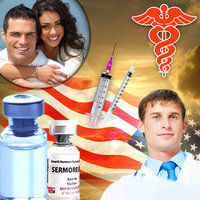Introduction to Telogen Effluvium
Telogen effluvium (TE) is a form of non-scarring alopecia that is often underestimated and overlooked, particularly among American men. This condition involves the excessive shedding of hair due to a disruption in the hair growth cycle, specifically during the telogen, or resting, phase. While it is commonly associated with women, TE can significantly impact men, leading to noticeable hair thinning and emotional distress.
The Hair Growth Cycle and Telogen Effluvium
To understand TE, it's essential to grasp the basics of the hair growth cycle. Hair follicles go through three stages: anagen (growth), catagen (transitional), and telogen (resting). Normally, about 10-15% of hairs are in the telogen phase. In TE, a higher percentage of hairs enter the telogen phase prematurely, leading to increased shedding when these hairs are pushed out by new growth.
Causes of Telogen Effluvium in Men
Several factors can trigger TE in men. Stress, whether physical or emotional, is a common cause. Significant life events such as job loss, divorce, or the death of a loved one can precipitate TE. Physical stressors like surgery, severe illness, or high fever can also induce the condition. Additionally, hormonal changes, nutritional deficiencies, and certain medications can contribute to TE. For American men, lifestyle factors such as poor diet and high stress levels may play a significant role.
Symptoms and Diagnosis
The primary symptom of TE is noticeable hair loss, often described as more hair than usual in the shower drain, on the pillow, or in a comb. This shedding typically begins two to three months after the triggering event. A dermatologist can diagnose TE through a thorough medical history and physical examination. They may perform a "pull test" to assess the number of hairs in the telogen phase and may order blood tests to rule out underlying conditions.
Treatment and Management
While TE is usually self-limiting and hair regrowth occurs within six to nine months, managing the underlying cause is crucial. For American men, addressing stress through lifestyle changes, such as regular exercise, meditation, and a balanced diet, can be beneficial. If nutritional deficiencies are identified, supplements like iron, zinc, or biotin may be recommended. In cases where medication is the cause, a doctor may suggest alternative treatments.
Psychological Impact and Support
The psychological impact of hair loss should not be underestimated. For many American men, hair is closely tied to self-esteem and masculinity. Experiencing TE can lead to anxiety, depression, and social withdrawal. Seeking support from mental health professionals, support groups, or loved ones can be invaluable. Additionally, some men may find relief in using hairpieces or topical treatments to improve their appearance during the regrowth phase.
Prevention and Awareness
Preventing TE involves maintaining overall health and managing stress effectively. Regular check-ups with a healthcare provider can help identify potential triggers early. Raising awareness about TE among American men is crucial, as many may not recognize the condition or know how to seek help. Education campaigns and open discussions about hair loss can encourage men to address the issue proactively.
Conclusion
Telogen effluvium is a common yet often overlooked cause of hair loss in American men. Understanding the triggers, recognizing the symptoms, and seeking appropriate treatment can significantly improve outcomes. By addressing both the physical and psychological aspects of TE, men can navigate this challenging condition and regain their confidence and well-being.
Contact Us For A Fast And Professional Response

- Unveiling the Silent Saboteur: The Connection Between Scalp Infections and Hair Loss in American Males [Last Updated On: February 18th, 2025] [Originally Added On: February 18th, 2025]
- Revolutionizing Confidence: A Comprehensive Guide to Medical Wigs for Hair Loss in American Males [Last Updated On: February 20th, 2025] [Originally Added On: February 20th, 2025]
- Chemotherapy-Induced Hair Loss in American Males: Understanding, Coping, and Regrowth Strategies [Last Updated On: March 1st, 2025] [Originally Added On: March 1st, 2025]
- Decrypting the Hidden Layers: Hair Loss as a Latent Medical Dilemma [Last Updated On: March 2nd, 2025] [Originally Added On: March 2nd, 2025]
- Exploring the Impact of Thyroid Disorders on Hair Health: Understanding the Connection, Clinical Symptoms, and Effective Management Strategies [Last Updated On: March 3rd, 2025] [Originally Added On: March 3rd, 2025]
- Advancements in Surgical Hair Loss Treatments for Men [Last Updated On: March 4th, 2025] [Originally Added On: March 4th, 2025]
- Comprehensive Guide to Understanding and Managing Hair Loss in American Men [Last Updated On: March 5th, 2025] [Originally Added On: March 5th, 2025]
- Understanding Pediatric Hair Loss: Causes, Impact, and Treatment Options [Last Updated On: March 6th, 2025] [Originally Added On: March 6th, 2025]
- The Efficacy of Over-the-Counter Hair Loss Treatments: Scientific Evidence and Safety Considerations [Last Updated On: March 7th, 2025] [Originally Added On: March 7th, 2025]
- Embracing Holistic Approaches for Hair Health: A Comprehensive Guide for American Males [Last Updated On: March 8th, 2025] [Originally Added On: March 8th, 2025]
- The Genetic Basis of Male Pattern Baldness: Insights, Treatments, and Prevention Strategies [Last Updated On: March 9th, 2025] [Originally Added On: March 9th, 2025]
- Understanding the Link Between Stress and Hair Loss in American Males: A Comprehensive Medical Insight [Last Updated On: March 12th, 2025] [Originally Added On: March 12th, 2025]
- Hormonal Insights into Male Hair Loss: Causes, Treatments, and Lifestyle Impact [Last Updated On: March 13th, 2025] [Originally Added On: March 13th, 2025]
- Understanding Hair Loss in American Men: Separating Myths from Medical Realities [Last Updated On: March 15th, 2025] [Originally Added On: March 15th, 2025]
- Allergies and Hair Loss: Exploring the Link for American Males [Last Updated On: March 16th, 2025] [Originally Added On: March 16th, 2025]
- Understanding Hair Loss: Causes, Types, and Advanced Treatments for American Males [Last Updated On: March 17th, 2025] [Originally Added On: March 17th, 2025]
- Male Hair Loss: Understanding Genetic, Hormonal, and Lifestyle Risk Factors [Last Updated On: March 18th, 2025] [Originally Added On: March 18th, 2025]
- Topical Treatments for Hair Loss: Efficacy, Application, and Emerging Options [Last Updated On: March 18th, 2025] [Originally Added On: March 18th, 2025]
- Hair Loss in American Men: Psychological Impacts and Holistic Coping Strategies [Last Updated On: March 19th, 2025] [Originally Added On: March 19th, 2025]
- Revolutionizing Hair Loss Treatment: Innovations and Hope for American Males [Last Updated On: March 20th, 2025] [Originally Added On: March 20th, 2025]
- Diabetes and Hair Loss in American Males: Understanding the Link and Managing Risks [Last Updated On: March 21st, 2025] [Originally Added On: March 21st, 2025]
- Monogenic Hair Loss: Genetic Insights and Management for American Males [Last Updated On: March 21st, 2025] [Originally Added On: March 21st, 2025]
- Antidepressants and Hair Loss in Men: Mechanisms, Identification, and Management Strategies [Last Updated On: March 21st, 2025] [Originally Added On: March 21st, 2025]
- Alopecia Universalis: Understanding, Managing, and Coping for American Males [Last Updated On: March 21st, 2025] [Originally Added On: March 21st, 2025]
- Hair Loss in American Males: A Potential Indicator of Heart Disease Risk [Last Updated On: March 22nd, 2025] [Originally Added On: March 22nd, 2025]
- Effective Hair Loss Treatments for American Men: Medications and Mechanisms [Last Updated On: March 22nd, 2025] [Originally Added On: March 22nd, 2025]
- Drug-Induced Hair Loss in American Males: Causes, Symptoms, and Management Strategies [Last Updated On: March 22nd, 2025] [Originally Added On: March 22nd, 2025]
- Innovative Hair Loss Solutions for American Males: From Stem Cells to 3D Printing [Last Updated On: March 22nd, 2025] [Originally Added On: March 22nd, 2025]
- Hair Follicle Miniaturization: Understanding and Managing Hair Loss in American Males [Last Updated On: March 23rd, 2025] [Originally Added On: March 23rd, 2025]
- Steroids and Hair Loss in American Men: Causes, Risks, and Management Strategies [Last Updated On: March 23rd, 2025] [Originally Added On: March 23rd, 2025]
- Autoimmune Disorders and Hair Loss in American Males: Mechanisms, Conditions, and Treatments [Last Updated On: March 23rd, 2025] [Originally Added On: March 23rd, 2025]
- Male Hair Loss: Causes, Prevention, and Treatment Options for American Men [Last Updated On: March 23rd, 2025] [Originally Added On: March 23rd, 2025]
- Anabolic Steroids and Hair Loss: Mechanisms, Prevalence, and Management in American Males [Last Updated On: March 23rd, 2025] [Originally Added On: March 23rd, 2025]
- Hair Loss in Young American Males: Causes, Impacts, and Treatment Needs [Last Updated On: March 23rd, 2025] [Originally Added On: March 23rd, 2025]
- Understanding Hair Loss: Causes, Treatments, and Hope for American Men [Last Updated On: March 23rd, 2025] [Originally Added On: March 23rd, 2025]
- Aromatherapy for Hair Loss: Benefits, Evidence, and Considerations for American Males [Last Updated On: March 23rd, 2025] [Originally Added On: March 23rd, 2025]
- Medical Hair Loss in Men: Causes, Management, and Prevention Strategies [Last Updated On: March 23rd, 2025] [Originally Added On: March 23rd, 2025]
- Aging Males and Hair Loss: Causes, Impacts, and Management Strategies [Last Updated On: March 24th, 2025] [Originally Added On: March 24th, 2025]
- Anemia and Hair Loss in American Males: Causes, Diagnosis, and Management Strategies [Last Updated On: March 24th, 2025] [Originally Added On: March 24th, 2025]
- Guide to Hair Loss Surgery Techniques for American Males [Last Updated On: March 24th, 2025] [Originally Added On: March 24th, 2025]
- Hair Cloning: A Breakthrough in Hair Loss Treatment for American Males [Last Updated On: March 24th, 2025] [Originally Added On: March 24th, 2025]
- Innovative Strategies to Mitigate Chemotherapy-Induced Hair Loss in American Males [Last Updated On: March 25th, 2025] [Originally Added On: March 25th, 2025]
- Vitamin Deficiencies and Hair Loss in American Males: Causes and Solutions [Last Updated On: March 25th, 2025] [Originally Added On: March 25th, 2025]
- Hair Extensions and Permanent Hair Loss: Risks for American Males [Last Updated On: March 25th, 2025] [Originally Added On: March 25th, 2025]
- Post-COVID Hair Loss in American Males: Causes, Symptoms, and Management Strategies [Last Updated On: March 26th, 2025] [Originally Added On: March 26th, 2025]
- LLLT: A Non-Invasive Hair Loss Solution for American Men [Last Updated On: March 26th, 2025] [Originally Added On: March 26th, 2025]
- American Men Triumph Over Hair Loss: Success Stories and Effective Treatments [Last Updated On: March 27th, 2025] [Originally Added On: March 27th, 2025]
- AI Revolutionizes Male Pattern Baldness Diagnosis and Treatment [Last Updated On: March 27th, 2025] [Originally Added On: March 27th, 2025]
- Androgenetic Alopecia: Advances in Treatment and Understanding Mechanisms [Last Updated On: March 27th, 2025] [Originally Added On: March 27th, 2025]
- Advanced Diagnostic Technologies for Hair Loss in American Men: A Comprehensive Overview [Last Updated On: March 27th, 2025] [Originally Added On: March 27th, 2025]
- Thyroid Disorders and Hair Loss in American Males: Causes and Management [Last Updated On: March 27th, 2025] [Originally Added On: March 27th, 2025]
- Immune System Disorders and Hair Loss in American Males: Mechanisms, Symptoms, and Treatments [Last Updated On: March 27th, 2025] [Originally Added On: March 27th, 2025]
- Managing Hair Loss: Medical Insights and Societal Perceptions for American Men [Last Updated On: March 27th, 2025] [Originally Added On: March 27th, 2025]
- Shock Loss After Hair Transplant: Causes, Timeline, and Management for American Males [Last Updated On: March 27th, 2025] [Originally Added On: March 27th, 2025]
- Hair Dyes and Hair Loss in American Males: Investigating the Correlation [Last Updated On: March 27th, 2025] [Originally Added On: March 27th, 2025]
- Postpartum Hair Loss: Causes, Effects, and Support Strategies for New Mothers [Last Updated On: March 27th, 2025] [Originally Added On: March 27th, 2025]
- PCOS-Like Symptoms and Hair Loss in American Males: Hormonal Insights [Last Updated On: March 27th, 2025] [Originally Added On: March 27th, 2025]
- PRP Therapy: A Promising Solution for Hair Loss in American Men [Last Updated On: March 28th, 2025] [Originally Added On: March 28th, 2025]
- High Blood Pressure and Hair Loss: Understanding the Indirect Links in American Males [Last Updated On: March 29th, 2025] [Originally Added On: March 29th, 2025]
- Androgenetic Alopecia: Genetic Insights and Emerging Treatments for Male Pattern Baldness [Last Updated On: March 29th, 2025] [Originally Added On: March 29th, 2025]
- Scalp Psoriasis in American Males: Impacts, Hair Loss, and Management Strategies [Last Updated On: March 29th, 2025] [Originally Added On: March 29th, 2025]
- Trichotillomania in American Males: Understanding, Impact, and Treatment Options [Last Updated On: March 30th, 2025] [Originally Added On: March 30th, 2025]
- Rogaine: Benefits, Risks, and Realistic Expectations for Hair Loss Treatment [Last Updated On: March 30th, 2025] [Originally Added On: March 30th, 2025]
- Understanding and Treating Hair Loss in Men: A Guide for Physicians [Last Updated On: March 31st, 2025] [Originally Added On: March 31st, 2025]
- Male Menopause and Hair Loss: Understanding and Managing Thinning in American Men [Last Updated On: April 2nd, 2025] [Originally Added On: April 2nd, 2025]
- Stem Cell Therapy: A New Hope for Hair Loss in American Males [Last Updated On: April 4th, 2025] [Originally Added On: April 4th, 2025]
- Hair Loss in American Men: Psychological Impacts and Holistic Coping Strategies [Last Updated On: April 4th, 2025] [Originally Added On: April 4th, 2025]
- Efficacy of Hair Loss Shampoos for American Males: Ingredients and Benefits Analyzed [Last Updated On: April 5th, 2025] [Originally Added On: April 5th, 2025]
- Hair Loss in American Males: Psychological Impacts and Holistic Treatment Approaches [Last Updated On: April 6th, 2025] [Originally Added On: April 6th, 2025]
- Understanding CCCA: Causes, Symptoms, and Management for American Males [Last Updated On: April 7th, 2025] [Originally Added On: April 7th, 2025]
- Minoxidil: Effective Hair Loss Treatment for American Men [Last Updated On: April 7th, 2025] [Originally Added On: April 7th, 2025]
- Hair Breakage vs. Hair Loss: Key Differences and Solutions for American Males [Last Updated On: April 7th, 2025] [Originally Added On: April 7th, 2025]
- Managing Hair Loss After Bariatric Surgery in American Males: Causes and Solutions [Last Updated On: April 9th, 2025] [Originally Added On: April 9th, 2025]
- Smoking and Hair Loss: Mechanisms, Evidence, and Mitigation Strategies for American Males [Last Updated On: April 11th, 2025] [Originally Added On: April 11th, 2025]
- Lifestyle Strategies to Combat Hair Loss in American Males [Last Updated On: April 11th, 2025] [Originally Added On: April 11th, 2025]
- Weight Loss Diets and Hair Loss: Insights for American Males [Last Updated On: April 12th, 2025] [Originally Added On: April 12th, 2025]
- Gastrointestinal Health and Hair Loss: Mechanisms, Impacts, and Management Strategies [Last Updated On: April 12th, 2025] [Originally Added On: April 12th, 2025]
- Dietary Strategies for American Men to Combat Hair Loss and Promote Hair Health [Last Updated On: April 13th, 2025] [Originally Added On: April 13th, 2025]
- Protein Shakes and Hair Loss: Understanding the Link for American Males [Last Updated On: April 13th, 2025] [Originally Added On: April 13th, 2025]
- Iron Supplements and Hair Loss Reversal in American Men: A Comprehensive Guide [Last Updated On: April 14th, 2025] [Originally Added On: April 14th, 2025]

















